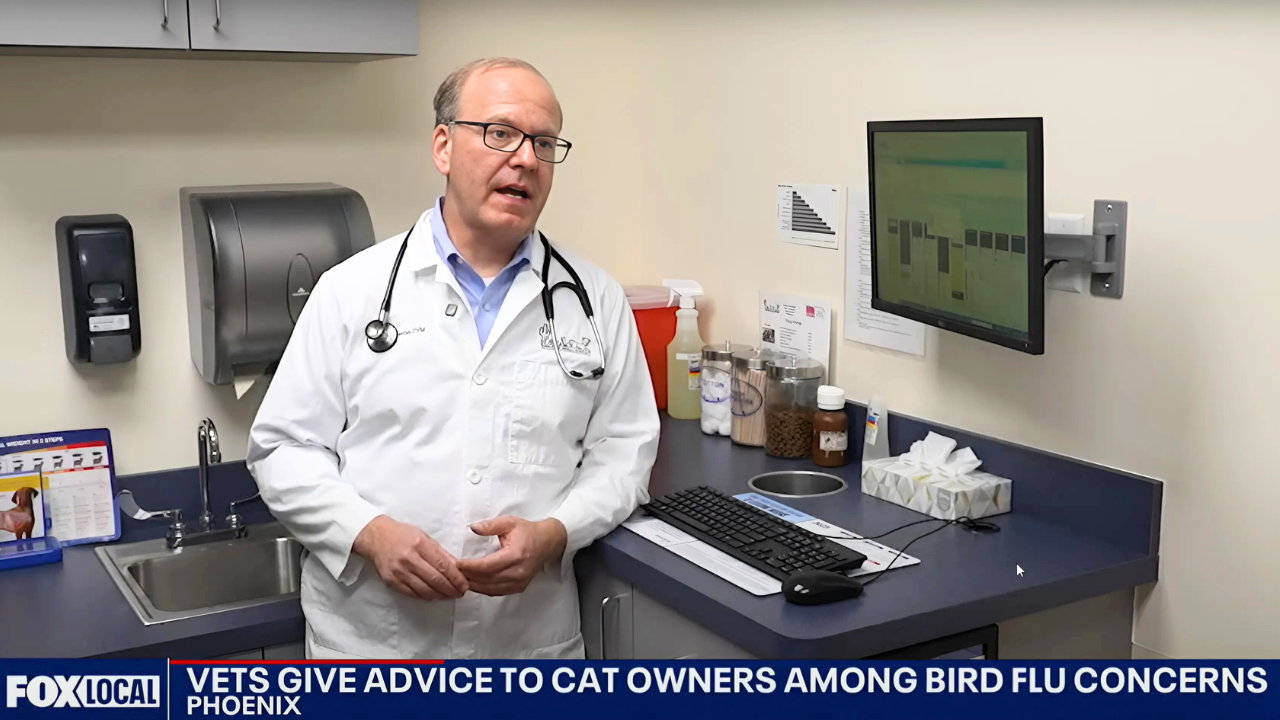In December 2024, the USDA reported nine positive cases of a virus involving cats across the United States, with Arizona seeing the tragic loss of five animals at Wildlife World Zoo. The affected species included a cheetah, a mountain lion, and several types of birds.
Dr. Brian Serbin, Medical Director of Ingleside Animal Hospital in Phoenix, explained that cats, particularly those with outdoor access, are at a higher risk of contracting the virus due to their predatory nature. "Especially outdoor cats that tend to hunt birds," Serbin noted, highlighting the connection between the virus and birds that may be infected.
Watch the Full Interview Here!

Current Status in Arizona
While Arizona has yet to see any confirmed cases of infected cats or dogs, Dr. Serbin urges pet owners to remain calm. "At this point, we don’t think it’s a widespread problem. Just take the proper precautions," he said. Dr. Serbin recommends keeping your cats indoors as a precautionary measure.
"While the risk here in Arizona is currently low, the situation is being closely monitored," Dr. Serbin added. “If your pet shows any signs of illness, such as lethargy or neurological symptoms, contact your veterinarian immediately.”
Precautions for Pet Owners
Health officials in California have reported cases of house cats testing positive for the virus after consuming raw pet food products. As a precaution, the CDC and local health authorities are advising cat owners to avoid raw meat or raw milk products for their pets. Dr. Serbin encourages Arizona pet owners to follow this same guidance to reduce the risk of exposure.
What is Bird Flu?
The virus in question is a strain of bird flu, caused by the influenza A virus, which primarily affects birds. According to the Mayo Clinic, bird flu can lead to serious illness or death in birds. Though rare, bird flu can sometimes infect humans, raising concerns about the potential for mutations that could lead to human-to-human transmission.
"Bird flu rarely infects humans, but health officials worry because influenza A viruses that infect birds can mutate, allowing them to infect humans and spread more easily," the Mayo Clinic explains.
What to Do if Your Pet Shows Symptoms
Dr. Serbin emphasizes the importance of being vigilant. "If your pet is not acting right—if they seem lethargic, are not eating, or are showing neurological signs like uncoordinated movements or seizures—get them checked by a veterinarian right away."
Stay Informed and Take Precautions
While there is no cause for alarm in Arizona at this time, we encourage all pet owners to stay informed and take appropriate precautions to protect their animals. If you have concerns or need advice, don’t hesitate to contact our team at Ingleside Animal Hospital.
